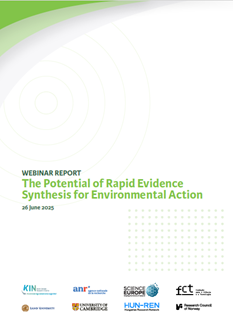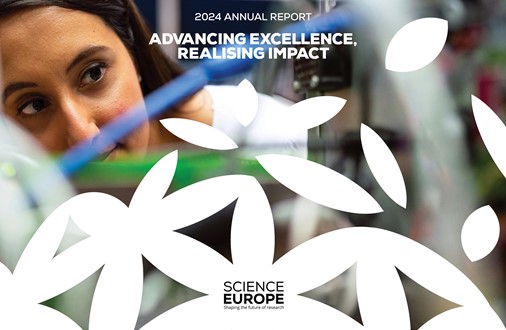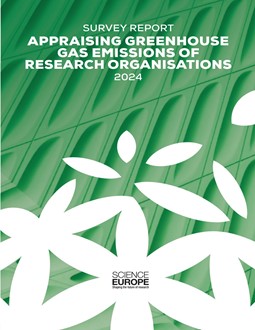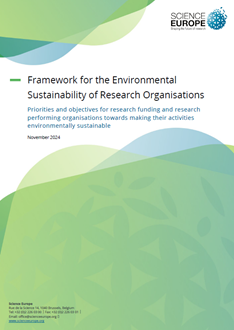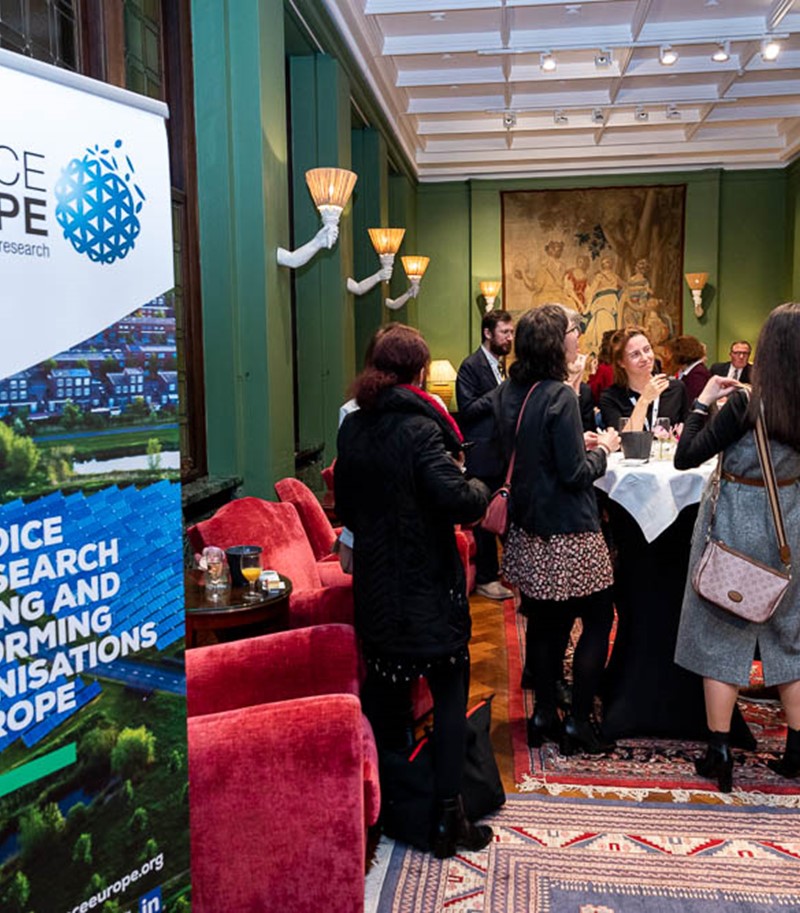
-
Share on
Science-Policy in Action for the Green and Digital Transition. A New Study Launched at a High-Level Event
“Science can and shall contribute to improving our societies”. With these words, the new Science Europe study “Science–Policy in Action. Insights for the Green and Digital Transition” starts with the analysis and mapping of Science Europe member organisations’ science–policy interfaces.
Launch event
This study was launched at a high-level event, including a keynote speech by the newly appointed Director General Marc Lemaitre from the European Commission’s Directorate General for Research and Innovation.
Marc Lemaitre. He presented the main activities at the EU level for evidence-based policy making emphasising the importance for EU policy makers to rely on available knowledge, mobilising interdisciplinary approaches and expertise. He mentioned the recent advice on ‘Energy Transition’ and ‘Cancer Screening’ to show how the EU’s Group of Chief Scientific Advisors contribute to EU policy making. Finally, he mentioned the Staff Working Document “Supporting and connecting policy making in the Member States with scientific research” as synthesis of the reflection on science–policy interactions. In his final messages, he advocated for science-informed policy making as a way to overcome the crisis of trust in institutions.
The event included a roundtable with high level experts from Science Europe governing board and SAPEA. SE President Marc Schiltz (Luxembourg’s FNR) emphasised the importance of aligning expectations between research and policy communities to facilitate the exchanges; while, Francisco Javier Moreno Fuentes (Spain’s CSIC) further elaborated on the need to develop skills for both policy makers and researchers. In the second round of questions, Mari Sundli Tveit (Norway’s RCN) focused on the importance of ensuring quality in both scientific research and policy advice and Véronique Halloin (Belgium’s F.R.S.-FNRS) addressed the importance of combining quality, scientific freedom and research integrity when providing policy advice. Finally, Moniek Tromp (Chair of the Young Academies Science Advice Structure, YASAS) further added the need for diversity in groups of science-policy advisors, while Mairead O’Driscoll (Ireland’ HRB) discussed the importance of international collaboration as science has no border, and policy-relevant scientific contribution can come also beyond national borders.
Summary of the report
Science has always informed decision-making processes, including those of policy makers. However, the past few years have seen the emergence of challenges such as post-truth politics, fake news, and disinformation, which created a crisis of trust for science-policy advice.
In this context, the new SE study analyses the organisational angle of science–policy interfaces by mapping activities, strategies and providing examples in the field of the green and digital transition. The role of research organisations as enablers for science-informed policy advice can take multiple forms, such as funding or performing policy-oriented research studies, science–policy matchmaking events, and exchange programmes between research and policy organisations.
Three models have been identified: 1) from policymakers to researchers; 2) from researchers to policy makers; and 3) science–policy hubs with structured platforms that facilitate exchanges in both directions. The report presents and discusses these three models using findings from a questionnaire and examples provided by Science Europe member organisations.
For the Green and Digital Transition, the report identifies significant disciplinary differences. Science advice dealing with climate change and biodiversity is more established because, according to the survey, they have been active for longer, and the Intergovernmental Panel on Climate Change (IPCC) is the most common reference in the field. On the contrary, the ‘digital’ side seems less structured: digitalisation, internet, and computer science are evolving much faster and across policy borders. The digital transition is still a field with quite limited scientific knowledge vis-à-vis rapid technology changes and disruptive societal impacts. Finally, science–policy interfaces are found relevant in all policy fields, and the report’s findings can be generalised beyond the case of the green and digital transition.
This study concludes by inviting research organisations to better recognise and support these activities to promote and encourage science-policy interactions. Science Europe members are already performing and funding science–policy interfaces and other organisations, such as the EU’s Joint Research Centres and DG Research and Innovation, are also engaged in support science-informed policymaking.
For Science Europe, the next step is the development of guidance to improve science–policy interactions.
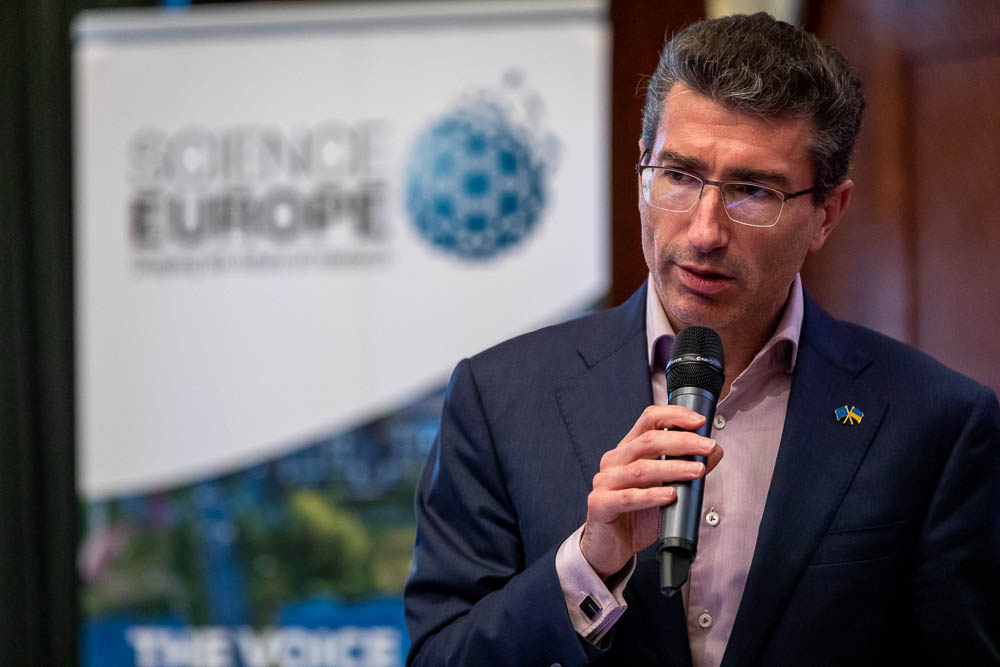
Marc Lemaitre
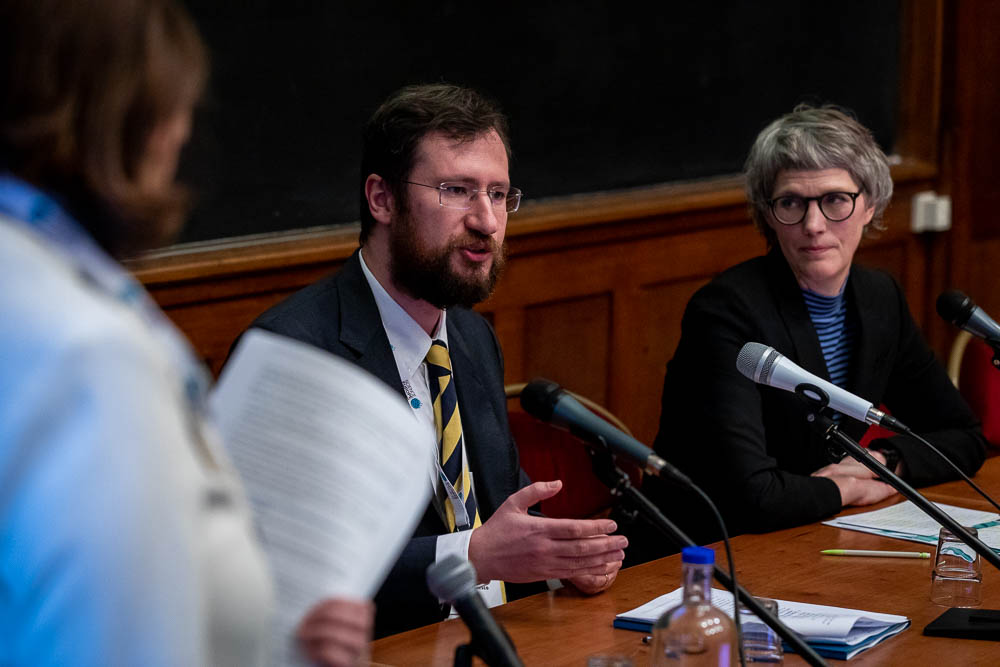
Nicola Dotti and Malin Mobjörk, co-authors of the report
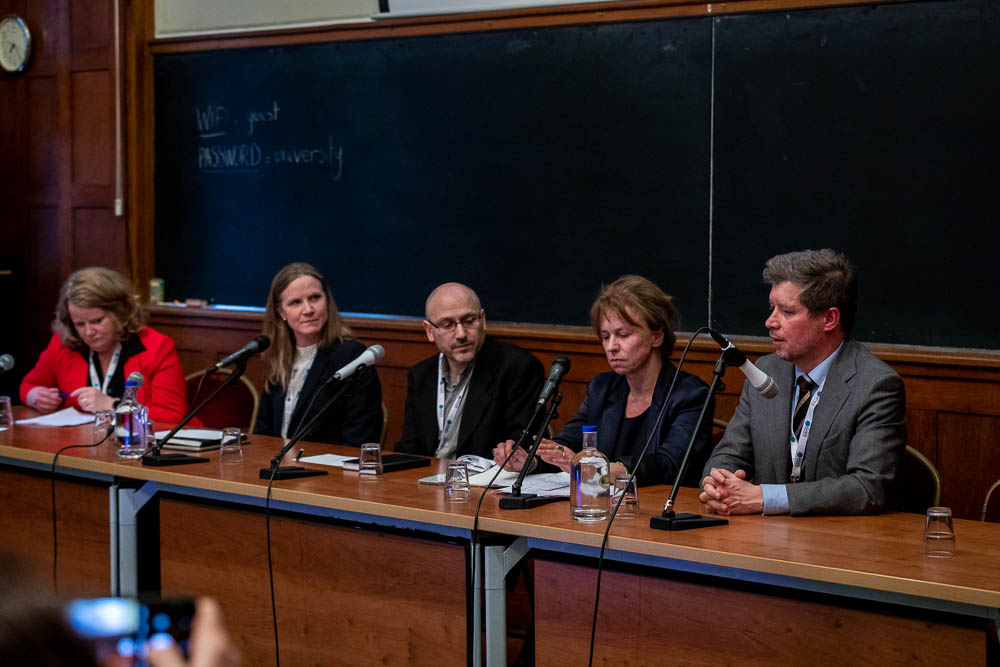
From left to right: Moniek Tromp, Mari Sundli Tveit, Francisco Javier Moreno Fuentes, Véronique Halloin and Marc Schiltz









